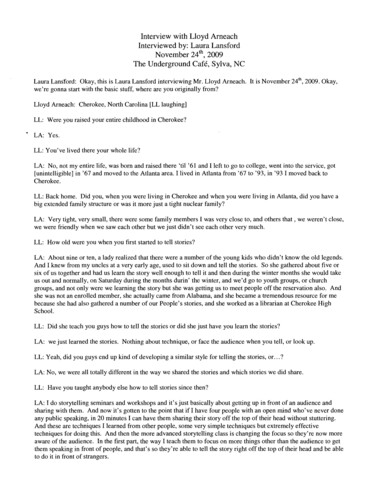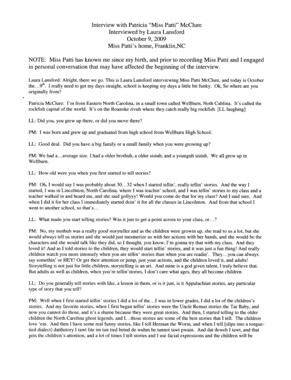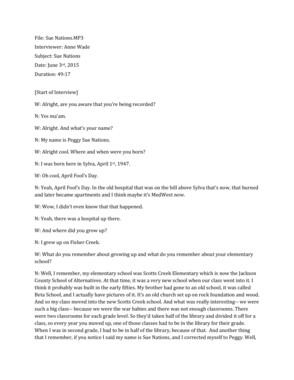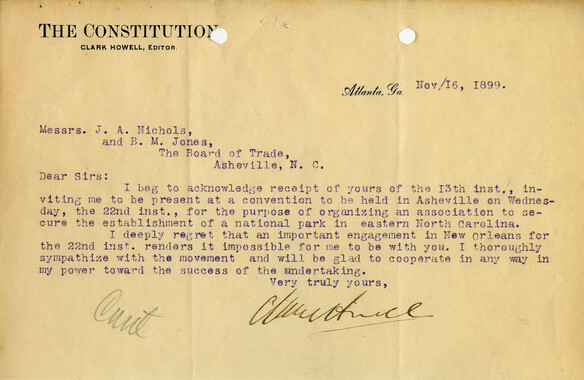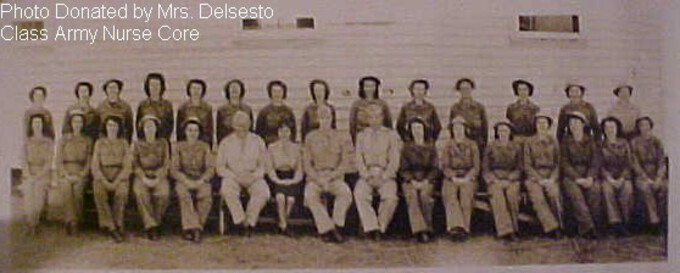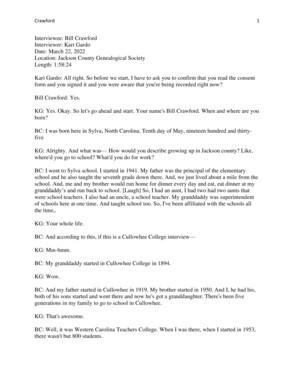Western Carolina University (20)
View all
- Canton Champion Fibre Company (2308)
- Cherokee Traditions (293)
- Civil War in Southern Appalachia (165)
- Craft Revival (1942)
- Great Smoky Mountains - A Park for America (2683)
- Highlights from Western Carolina University (430)
- Horace Kephart (941)
- Journeys Through Jackson (154)
- LGBTQIA+ Archive of Jackson County (15)
- Oral Histories of Western North Carolina (314)
- Picturing Appalachia (6679)
- Stories of Mountain Folk (413)
- Travel Western North Carolina (160)
- Western Carolina University Fine Art Museum Vitreograph Collection (129)
- Western Carolina University Herbarium (92)
- Western Carolina University: Making Memories (708)
- Western Carolina University Publications (2283)
- Western Carolina University Restricted Electronic Theses and Dissertations (146)
- Western North Carolina Regional Maps (71)
- World War II in Southern Appalachia (131)
University of North Carolina Asheville (6)
View all
- 1700s (1)
- 1860s (1)
- 1890s (1)
- 1900s (2)
- 1920s (2)
- 1930s (5)
- 1940s (12)
- 1950s (19)
- 1960s (35)
- 1970s (31)
- 1980s (16)
- 1990s (10)
- 2000s (20)
- 2010s (24)
- 2020s (4)
- 1600s (0)
- 1800s (0)
- 1810s (0)
- 1820s (0)
- 1830s (0)
- 1840s (0)
- 1850s (0)
- 1870s (0)
- 1880s (0)
- 1910s (0)
- Appalachian Region, Southern (15)
- Asheville (N.C.) (11)
- Avery County (N.C.) (1)
- Buncombe County (N.C.) (55)
- Cherokee County (N.C.) (17)
- Clay County (N.C.) (2)
- Graham County (N.C.) (15)
- Great Smoky Mountains National Park (N.C. and Tenn.) (1)
- Haywood County (N.C.) (40)
- Henderson County (N.C.) (5)
- Jackson County (N.C.) (131)
- Knox County (Tenn.) (1)
- Macon County (N.C.) (17)
- Madison County (N.C.) (4)
- McDowell County (N.C.) (1)
- Mitchell County (N.C.) (5)
- Polk County (N.C.) (3)
- Qualla Boundary (6)
- Rutherford County (N.C.) (1)
- Swain County (N.C.) (30)
- Watauga County (N.C.) (2)
- Waynesville (N.C.) (1)
- Yancey County (N.C.) (3)
- Blount County (Tenn.) (0)
- Knoxville (Tenn.) (0)
- Lake Santeetlah (N.C.) (0)
- Transylvania County (N.C.) (0)
- Interviews (314)
- Manuscripts (documents) (3)
- Personal Narratives (7)
- Photographs (4)
- Sound Recordings (308)
- Transcripts (216)
- Aerial Photographs (0)
- Aerial Views (0)
- Albums (books) (0)
- Articles (0)
- Artifacts (object Genre) (0)
- Biography (general Genre) (0)
- Cards (information Artifacts) (0)
- Clippings (information Artifacts) (0)
- Crafts (art Genres) (0)
- Depictions (visual Works) (0)
- Design Drawings (0)
- Drawings (visual Works) (0)
- Envelopes (0)
- Facsimiles (reproductions) (0)
- Fiction (general Genre) (0)
- Financial Records (0)
- Fliers (printed Matter) (0)
- Glass Plate Negatives (0)
- Guidebooks (0)
- Internegatives (0)
- Land Surveys (0)
- Letters (correspondence) (0)
- Maps (documents) (0)
- Memorandums (0)
- Minutes (administrative Records) (0)
- Negatives (photographs) (0)
- Newsletters (0)
- Newspapers (0)
- Occupation Currency (0)
- Paintings (visual Works) (0)
- Pen And Ink Drawings (0)
- Periodicals (0)
- Plans (maps) (0)
- Poetry (0)
- Portraits (0)
- Postcards (0)
- Programs (documents) (0)
- Publications (documents) (0)
- Questionnaires (0)
- Scrapbooks (0)
- Sheet Music (0)
- Slides (photographs) (0)
- Specimens (0)
- Speeches (documents) (0)
- Text Messages (0)
- Tintypes (photographs) (0)
- Video Recordings (physical Artifacts) (0)
- Vitreographs (0)
- WCU Mountain Heritage Center Oral Histories (25)
- WCU Oral History Collection - Mountain People, Mountain Lives (71)
- Western North Carolina Tomorrow Black Oral History Project (69)
- A.L. Ensley Collection (0)
- Appalachian Industrial School Records (0)
- Appalachian National Park Association Records (0)
- Axley-Meroney Collection (0)
- Bayard Wootten Photograph Collection (0)
- Bethel Rural Community Organization Collection (0)
- Blumer Collection (0)
- C.W. Slagle Collection (0)
- Canton Area Historical Museum (0)
- Carlos C. Campbell Collection (0)
- Cataloochee History Project (0)
- Cherokee Studies Collection (0)
- Daisy Dame Photograph Album (0)
- Daniel Boone VI Collection (0)
- Doris Ulmann Photograph Collection (0)
- Elizabeth H. Lasley Collection (0)
- Elizabeth Woolworth Szold Fleharty Collection (0)
- Frank Fry Collection (0)
- George Masa Collection (0)
- Gideon Laney Collection (0)
- Hazel Scarborough Collection (0)
- Hiram C. Wilburn Papers (0)
- Historic Photographs Collection (0)
- Horace Kephart Collection (0)
- Humbard Collection (0)
- Hunter and Weaver Families Collection (0)
- I. D. Blumenthal Collection (0)
- Isadora Williams Collection (0)
- Jesse Bryson Stalcup Collection (0)
- Jim Thompson Collection (0)
- John B. Battle Collection (0)
- John C. Campbell Folk School Records (0)
- John Parris Collection (0)
- Judaculla Rock project (0)
- Kelly Bennett Collection (0)
- Love Family Papers (0)
- Major Wiley Parris Civil War Letters (0)
- Map Collection (0)
- McFee-Misemer Civil War Letters (0)
- Mountain Heritage Center Collection (0)
- Norburn - Robertson - Thomson Families Collection (0)
- Pauline Hood Collection (0)
- Pre-Guild Collection (0)
- Qualla Arts and Crafts Mutual Collection (0)
- R.A. Romanes Collection (0)
- Rosser H. Taylor Collection (0)
- Samuel Robert Owens Collection (0)
- Sara Madison Collection (0)
- Sherrill Studio Photo Collection (0)
- Smoky Mountains Hiking Club Collection (0)
- Stories of Mountain Folk - Radio Programs (0)
- The Reporter, Western Carolina University (0)
- Venoy and Elizabeth Reed Collection (0)
- WCU Gender and Sexuality Oral History Project (0)
- WCU Students Newspapers Collection (0)
- William Williams Stringfield Collection (0)
- Zebulon Weaver Collection (0)
- African Americans (97)
- Artisans (5)
- Cherokee pottery (1)
- Cherokee women (1)
- College student newspapers and periodicals (4)
- Education (3)
- Floods (13)
- Folk music (3)
- Great Smoky Mountains National Park (N.C. and Tenn.) (1)
- Hunting (1)
- Mines and mineral resources (2)
- Rural electrification -- North Carolina, Western (2)
- School integration -- Southern States (2)
- Segregation -- North Carolina, Western (5)
- Slavery (5)
- Sports (2)
- Storytelling (3)
- World War, 1939-1945 (3)
- Appalachian Trail (0)
- Cherokee art (0)
- Cherokee artists -- North Carolina (0)
- Cherokee language (0)
- Church buildings (0)
- Civilian Conservation Corps (U.S.) (0)
- Dams (0)
- Dance (0)
- Forced removal, 1813-1903 (0)
- Forest conservation (0)
- Forests and forestry (0)
- Gender nonconformity (0)
- Landscape photography (0)
- Logging (0)
- Maps (0)
- North Carolina -- Maps (0)
- Paper industry (0)
- Postcards (0)
- Pottery (0)
- Railroad trains (0)
- Waterfalls -- Great Smoky Mountains (N.C. and Tenn.) (0)
- Weaving -- Appalachian Region, Southern (0)
- Wood-carving -- Appalachian Region, Southern (0)
- Sound (308)
- StillImage (4)
- Text (219)
- MovingImage (0)
Interview with Lloyd Arneach
Item
Item’s are ‘child’ level descriptions to ‘parent’ objects, (e.g. one page of a whole book).
-
Lloyd Arneach discusses how a librarian at Cherokee High School encouraged him and others to share the legends they had learned from their families through storytelling and how he developed his own storytelling style. He mentions doing storytelling seminars, workshops, and teaching classes on storytelling and that he gets to tell mostly Native American stories, because of audience demand, and only occassionally share other stories.
-
-
Interview with Lloyd Arneach Interviewed by: Laura Lansford November 24th, 2009 The Underground Cafe, Sylva, NC Laura Lansford: Okay, this is Laura Lansford interviewing Mr. Lloyd Arneach. It is November 24th, 2009. Okay, we're gonna start with the basic stuff, where are you originally from? Lloyd Arneach: Cherokee, North Carolina [LL laughing] LL: Were you raised your entire childhood in Cherokee? LA: Yes. LL: You've lived there your whole life? LA: No, not my entire life, was born and raised there 'til '61 and I left to go to college, went into the service, got [unintelligible] in '67 and moved to the Atlanta area. I lived in Atlanta from '67 to '93, in '93 I moved back to Cherokee. LL: Back home. Did you, when you were living in Cherokee and when you were living in Atlanta, did you have a big extended family structure or was it more just a tight nuclear family? LA: Very tight, very small, there were some family members I was very close to, and others that, we weren't close, we were friendly when we saw each other but we just didn't see each other very much. LL: How old were you when you first started to tell stories? LA: About nine or ten, a lady realized that there were a number of the young kids who didn't know the old legends. And I knew from my uncles at a very early age, used to sit down and tell the stories. So she gathered about five or six of us together and had us learn the story well enough to tell it and then during the winter months she would take us out and normally, on Saturday during the months durin' the winter, and we'd go to youth groups, or church groups, and not only were we learning the story but she was getting us to meet people off the reservation also. And she was not an enrolled member, she actually came from Alabama, and she became a tremendous resource for me because she had also gathered a number of our People's stories, and she worked as a librarian at Cherokee High School. LL: Did she teach you guys how to tell the stories or did she just have you learn the stories? LA: we just learned the stories. Nothing about technique, or face the audience when you tell, or look up. LL: Yeah, did you guys end up kind of developing a similar style for telling the stories, or ... ? LA: No, we were all totally different in the way we shared the stories and which stories we did share. LL: Have you taught anybody else how to tell stories since then? LA: I do storytelling seminars and workshops and it's just basically about getting up in front of an audience and sharing with them. And now it's gotten to the point that if I have four people with an open mind who've never done any public speaking, in 20 minutes I can have them sharing their story off the top of their head without stuttering. And these are techniques I learned from other people, some very simple techniques but extremely effective techniques for doing this. And then the more advanced storytelling class is changing the focus so they're now more aware of the audience. In the first part, the way I teach them to focus on more things other than the audience to get them speaking in front of people, and that's so they're able to tell the story right off the top of their head and be able to do it in front of strangers. LL: Do you tell only Cherokee stories, or do you tell other types of stories? LA: I'm pigeonholed in that people want to hear Native American stories from Native Americans, and have so many stories that are not Native American, but they go, tell us Native American stories, because other people will tell us others, but we never have Native American stories shared with us. So in that regard I'm pigeonholed because of my ethnic background. However, there are occasions in open forums that I do get to share other stories, but that doesn't happen very often. LL: What types of stories do you tell, do you tell Appalachian stories or ... ? LA: Stories I've heard around, stories that are true, I was just there to see what happened, stories I've picked up over the years from people who've shared with me. A wide variety of stories. LL: How do you think growing up in Cherokee and then moving to Atlanta later in your life and moving back to Cherokee, how do you think where you've lived has influenced how you tell the stories? LA: It hadn't influenced it at all. [LL laughing] LL: Have you noticed your style, like the way you tell the stories changing at all over time? LA: Yes. When I first started one of the things, when I was in fifth grade, we had an individual come in, who was an expert in this subject, but he was very boring when he spoke. And, it was just a monotone. And I thought this is a very interesting subject but he's about to put me to sleep, and at that time in the fifth grade I vowed if I were ever able to get up in front of an audience I would find some way to make whatever we were talking about interesting. And so when I started sharing stories, one of my criteria for myself was to learn how can I make this story interesting, or what can I bring up? Prior to the story, during the story, or after the story, to keep their interest? And this was a very effective requirement for me to set and I found a lot, well I won't say a lot, but some storytellers do not use this, they are depending on the story itself, and I think, not that they'd become better storytellers, but they would engage the audience more fully instead of disengaging between stories and then ok, now we're hooking up again for the story. But keeping that engagement through the entire program. LL: When you tell stories, do you use a lot of the audience participation? LA: No, very little audience participation, because depending on the audience, I never have a program that I've set unless someone has requested a specific story. I go into the venue and I will never know what stories I'm going to tell. There are some stories I tell at the very beginning, and this is what I use to gauge the audience. What kind of audience do I have? Are they reacting, are they very stoic, are they very enthusiastic? What kind of audience do I have here? Is it primarily children, primarily adults, adults and children? If it's adults and children I try to keep both the children engaged as well as the adults, and I know I lose the children at some point but I really engage them to tell the story. So, so much is governed by what type of audience I have. For example, just last week I went to a college and twenty minutes before the program I discovered they were there to get credit and I thought, oh boy. That's what I call a captive audience. I have two audiences, a captive and a free audience. A free audience for me is one that chose to be here. Nothing required. And a captive audience is, we have to be there it's required, for something we're doing. It has to be part of ... I've got to be here for this, and they responded, you know, most of them were simply I wannabe somewhere else, and it came true. [unintelligible] Okay, so that is what you know, occurred with them. And then on the other hand I had an audience last night and they were very very enthusiastic. It was an audience I would have liked to have kept for an hour and a half to tell stories, but we had a very short time. They wanted artifacts included in this, they wanted question and answers, so that cuts into the time I had, and that really cuts my time down by half because half the program I devote to the questions/answers and the artifacts, so I divide those into quarters, so a quarter's questions and answers, a quarter's artifacts, and halfthe program was storytelling. And in that short time frame I cannot engage in the stories I would like, and this is an audience I would love to have just a straight hour of telling with them, because they were, they were an audience I would pay to take with me they were so enthusiastic. LL: Do you, do your stories usually have a specific meaning or a lesson in them? LA: No, not necessarily. I do preface some of the stories, one story I preface by saying sometimes we overlook the obvious, and in this story we find this occurred. And another story I tell them there are many lessons in this story, but I will only talk about one of the lessons in this particular story. Another story I will share and say this is why I think of this man's a true Olympic champion, and then share the story. LL: Have you noticed people's or audience's attitudes toward storytelling or toward specific stories, have you noticed that change over time? Like, because of something that was going on in politics or stuff like that? LA: No, no. I have a lot of political that I could share, but the change in attitude is really ... most adults come in and think storytelling's for children. And again, I tell them give me twenty minutes, and I'll change your mind, you will want to hear more stories and you're an adult. I can keep the children entertained; I've worked with Montessori as young as three years old. I kept 'em for an hour, and the teachers wanted more. See that's when I want to leave. I don't wanna wear you out, say oh when is he gonna stop! I'd rather leave them, oh! But, but! You know, Can we get more? Bring me back again! So that is the note on which I like to leave, it's you know, it's the pinnacle, when their excitement is the greatest, ok, well our time has expired. LL: Do you, when you have an audience that's mostly adults, or mostly children, do you change the types of stories that you tell for those specific audiences? LA: It depends, Now there's stories, I can share the same stories with young children as I can with adults. The difference is with the adults, I add more detail. Whereas the children would be lost with the detail, now the story takes on more meaning to the adult because, AH, now they catch the morals in this story with the details that have been added. And there are stories that are very intense stories, and some of the audiences, when they advertise, I will tell them for adults, and not because it's triple X rated, but because the stories are so intense. And when the venue is correct, the timing is correct, the audience is correct I will share some very powerful stories with them, but I have to have those three criteria in place before that will occur. If we have an event where people are corning in and out of the room, no. If we have an event where you hear road noise outside, no. If the audience is not very responsible, I mean not responsive, no, it will not occur. And they will never know. I'll change the program in midstream, if I see oh they're not responding to these stories, then I'll shift to a different type of stories and they will never know that the program shifted. But just because of their reaction. LL: You just mentioned the different places, do you, when you know you're gonna be telling a story in a festival kind of environment where there are probably gonna be people corning in and out, do you choose a different type of story than you would've told, say if you had an audience that was gonna sit there for an hour? LA: It depends on the audience reaction, again. I can, in that environment where people are corning in and out, they're doing that on the peripheral, sides of the area there, not corning into the middle of the crowd, and the audience is with me, then in those instances I will share. I was at the Richmond Folklife Festival and we were in a tent so people were constantly corning in from the outside edges of this, and in this environment I had some good audiences and I went into some very intense stories with them and this brought them up into standing ovations as a result. But here's an environment that was really conducive that the audience itself said we will honor these types of stories, and so I did. LL: That's good. I got caught up in what we were talkin' about and completely lost my place in my questions. Okay, is storytelling an occupation for you or is it just something that you do, like something you do for fun or that you do because you're passionate about it? LA: Well, I used to be a computer programmer, and I didn't consider that an occupation. I got paid to go to work and do a job that I enjoyed. I was an electronics technician before that, and again, I got paid to do something I enjoyed. So I've never had a job I didn't enjoy. I don't think of it in terms of an occupation but it's something that I do, and I get paid for it too. I used to be a karate instructor for many many years and got paid for doing that. Then I started teaching women's self defense and got paid for doing that, but I also felt that I was teaching them some very basic survival techniques and it wasn't physical techniques so much as it was being aware. That was almost 60% of our women's self defense and then the very last thing which was the physical contact. Here is also what you can do, and I used techniques, I been studying martial arts for, since I was 14, and I'm 66 now. And I went through the different styles I had studied and started pulling techniques that are very easy to learn, very effective, but they hurt people. And I've always told women in this class, if you're afraid of hurting someone then you don't need to be in this class, 'cause I'll show you how to hurt someone. The whole idea is you need to get away from this person, they have to business doin' what they're doin' to you, and this will hurt them long enough for you to get away. But with the storytelling I'm very intense about the telling also along the same vein that here are stories, that if I feel this audience will honor and respect the stories as I do, then I will take the time and I will prepare them with a certain number of stories. That's preparing them emotionally and physically and it's also preparing me emotionally and physically to tell the stories, because some of the stories put me on a very thin edge of control when I'm tellin' the stories and I can't just jump into it, I cannot finish the story because the feelings of the story [unintelligible] So I prepare them but I'm also preparing myself and they don't realize, he's transitioning. LL: What do you think storytelling contributes to the community, like to the people who hear stories, and the people who tell them for that matter? LA: It opens up a whole new world for them. Number one, communication. So many people say well we communicate and no, what you do is you're waiting for someone to stop talking so you can start and you haven't heard what they said. You're just trying to wait for a break, they take a breath and you start talking. We're not communicating. With storytelling you sit and you listen and you absorb what is being shared, and that is a lost art today. We're sitting in front of a television, we're sitting with a phone in our ear, and we're going back and forth. We're talking, we're not communicating. When you hear what somebody really has to say and you're absorbing that and that helps you form the answers instead of waiting for them to stop and then YOU start, that's talking. Storytelling is going back to communication. Sit and listen, if you sit for an hour and listen to a storyteller and when they finish you say, that can't be an hour! That is the remarkable wonder of the spoken word, of the oral tradition. And sharing that with people, opening them up to possibilities, and also not only do they come to hear stories but they then realize they also have stories to tell. LL: Do you feel like, you mentioned how people nowadays are always watching TV or always on the phone or always on the computer, do you think that technology like the internet and TV, stuff like that, has influenced storytelling, like one person mentioned that now they set all their storytelling appointments through facebook. Have you noticed anything like, even, even people's style, has it influenced .. ? LA: No, aside from getting your word out, I have a website, people say you know, where you gonna be? And I say you know, here's my website, go look at my website and you'll see my schedule, you'll find where I've told, you'll find my bio there, you'll find some pictures on there of places I have told and you'll find some links on there to some interesting things if I have interested you in storytelling. So in that regard, getting the word out, that has provided a forum for us to do that, which we wouldn't have without the internet. LL: Makes things simpler sometimes even though it get in the way of other stuff. When someone asks you what you do, like even when you were still working in the computer field, do you answer with 'I'm a storyteller' or 'I'm multiple things'? LA: Yes, but then I would tell them 'I'm a computer programmer'. And if you say well what do you enjoy doing? I enjoy storytelling. But I didn't really get into the storytelling until1990. In 1970 I was asked to share Cherokee culture and history and so from 1970 to 1990 I was doing this in my spare time. And it actually started with a girl scout leader who babysat for us, and she had a girl scout troop, and they had an Indian Lore badge. Well she couldn't find any book in the entire county library system on Indians, and this was in Georgia, and she said, wait a minute, I babysit for an Indian! So she asked me if I could help them and so I asked well what are the requirements, they were very simple. And I said, sure, but I'm gonna have to come straight from work, is that a problem? She said oh no no no. So I went to work and the I sat down, well I went to work and then I left to go straight to the scout meeting, I went in to sit down and the girls looked at me and sorta .. .I dunno where the Indian is, but he's gonna be here pretty soon, and I was wearing a three piece suit. And when I got up to speak you could hear the jaws hitting the floor, because they expected feathers and buckskin. And it has been just interesting the prevailing thoughts of today's Indians. I've had some people ask me what was it like living in a teepee, not realizing Cherokee NEVER lived in teepees! And I have been asked how long have you been an Indian? And they were sincere about this. So these were some questions I've heard all through my career, got them for many years and now I'm no longer startled by any of the questions that I get because now they're starting to repeat. I've heard that before, heard that before. And that's an unusual question but it's not startling compared to some of the others I've had. So it's been an evolutionary process in learning how to handle these questions and handle some of them with a straight face. LL: Yeah, [laughing] Have you, do you notice whether people's expectations with you being Native American, do you think that their expectations kind of flavor the way they react to your stories? LA: No, once I get in and establish myself with them, and I do that basically within the first three to five minutes, if they get up and do an intro, this is Lloyd Arneach, enrolled member, Indian this, Indian that, and then I come out on stage, I say 'Bonjour! Comment ca-va?' And they'll have a stunned look on their face, and I may say 'gut morgen! Sprecken-zie deutche? Nien?', 'Buenos Dias!' (foreign languages spelled phonetically) and it's suddenly what what? He's speaking all these foreign languages! And then I say, good afternoon! OOOOH!, yeah, good afternoon, they respond to that. So I say well, we'll use this foreign language! And they're sorta lookin' at me goin' ... foreign language? And I say yeah. What's he talking about, speaking English! I say, this is true but you have to understand, my language, Cherokee, has been spoken on this continent a lot longer than English, so I consider English a foreign language. That's the language you all understand, so that's the language we use today. And running off of that I've established with them, with that very simple opening that it's okay to laugh, that I'm going to have fun with them, and that I speak with them like somebody else would. And so we have established this right off the bat. But, for years I would open up, not for years, but probably at the time I first started, if you think it's funny, go ahead and laugh! And I'd see them hiding their mouth and turning their face away from the stage, and they were laughing. And the thought was they'd all seen the picture of the stoic Indian, arms-crossed, tight lipped, no smile, no sense of humor, and didn't want to laugh in front of him. And I told them it's ok to laugh, again, they didn't answer. So I hit on this method of explaining, well not really explaining but saying, I'll come out and I'll say [Cherokee greeting] and it gets dead quiet and everybody starts lookin' ... what is he saying? Nobody here speaks Early American??? And oh they start laughing and again, it establishes that it's ok to laugh with him, without me coming out and saying it. But these are a few things I've learned over the years, you know, the school of hard knocks. LL: When I lost my place earlier I forgot to ask you this, but you said the one occasion you went to tell stories and they wanted you to bring artifacts so that you had so split your time up between artifacts and questions and stories, do people want you to bring artifacts or props a lot? LA: I, when I, on my website, it says I can bring artifacts and I put this in bold italicized words .. .If Requested. Because some of them expect me to bring artifacts, I say no, it says if requested, and it's in bold, italicized letters. And they, some want me to do half storytelling and half with the artifacts. And I carry items with me .. .I can't take a blowgun and darts into school because those are considered weapons. However to adult meetings I will take those and it's very spectacular, if they remember nothing else about the artifacts, they remember the blowgun and the darts, and there's a number of other things that I take, baskets, and drills, masks, so it just depends on the audience. And it's delightful in taking them out and doing that, but it cuts into the storytelling. And when I have an audience like I had last night I would rather forego the artifacts and talk about storytelling. I say, bring me back again, I'll do an entire program just on artifacts, we can fill that no problem. LL: Is there anything about storytelling or about the types of stories that you tell that you wanna say that I haven't touched on? Cause I'm sure there's probably something I haven't touched on. [long pause] It's kinda hard to think with an open ended question but. .. LA: It's .. .I take great delight in it. I have people who heard me twelve years ago who have the had the opportunity to come back, and bring folks with 'em, to hear me. I have had, on one occasion I was sharing with the fifth grade and a tifth grader came up to me and said my mom and dad really enjoyed hearing you. I said being them up, I'd like to meet them, he said well I can't. So I said well you shoulda brought 'em up before they left, he said no, no, they didn't hear you here. I said, well where did they hear me? He said, you came to their high school. And I'd been do in' the culture for 18 years at that point, and it was just a figure, it didn't mean anything but now I'm talking to a second generation. And suddenly it's ... 18 yeeear, get mah caaaane and I'm gonna hobble on to the door, you know? [both laughing] So it has been, it's been wonderful to have people come in, bring, when I have those occasions to share the more powerful, intense stories, to see the audience crying. That they're honoring the stories and respect the stories, and have the same feelings about the stories that I do. And for me to be able to share in such a manner, that they also feel that, that is a wonderful feeling. And to have them come up and say I never knew that this was what storytelling could be, and I say yes, yeah, now you are re-energized and you're now opened up to a new idea of what storytelling can be. It's not just for kids. And that's why I emphasize if I can get a group of adults for twenty minutes, I can change their minds and say no, it's not just for kids. LL: What is the, if you had to pick one thing to tell somebody about storytelling, what is the most important thing you think people should know? LA: Everybody, when they share an occurrence with someone else, is a storyteller. And they all have stories to tell, but they normally do not realize that. It's not the size of the audience that matters, it's just the fact that you share an experience or something that you saw happen. You're a storyteller. LL: Alright, I think that about does it.
Object
Object’s are ‘parent’ level descriptions to ‘children’ items, (e.g. a book with pages).
-
Lloyd Arneach discusses how a librarian at Cherokee High School encouraged him and others to share the legends they had learned from their families through storytelling and how he developed his own storytelling style. He mentions doing storytelling seminars, workshops, and teaching classes on storytelling and that he gets to tell mostly Native American stories, because of audience demand, and only occassionally share other stories.
-
